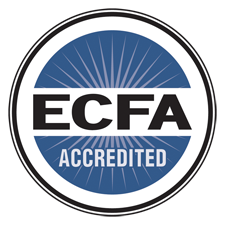Paul Arveson has been a member of ASA since 1974. He has a background in research physics and computer system management. Since 2008 Paul has served as a Director on the board of a local nonprofit called Solar Household Energy, Inc. Louise Meyer is co-founder of this organization and has been an international advocate and trainer for solar cooking projects in many countries.

By Paul Arveson
In some African wedding ceremonies, a woman is not
considered married until she goes out in the desert and collects three large
stones to make a hearth. She is
literally married to her three-stone fire for the rest of her life. This is a cooking method that is still used
by billions, and is the cause of health problems due to indoor smoke,
deforestation, CO2, black carbon emissions, and simply the poverty
exacerbated by fuel costs1. Women and children bear the brunt of the
health effects, and they typically spend many hours per week gathering firewood
for cooking, which has risks of its own.

This is a photo of a Haitian woman in her kitchen, where she
will stir the pot, holding a child, as they breathe the smoke of the indoor
cooking fire for hours a day. What's wrong with this
picture? You can see that outside
the sun is shining brightly. Many
regions of the world are rich in one resource: a solar irradiance of about 1
kilowatt per square meter that is going unused.
Researchers at organizations like Solar Household Energy,
Inc. have designed efficient solar cookers that can replace fuel-based
cookstoves on sunny days. Solar cookers
simply use reflectors to concentrate sunlight enough to cook a large pot of
food in a couple of hours. However, the
labor time is minimal because food does not need to be stirred – like a crock
pot in an American kitchen. This frees
up time to care for children, tend a garden or do other profitable
activities. There is less need for
gathering, chopping and carrying firewood (except for use on cloudy days). There is no smoke inside the house (respiratory
diseases are a major cause of illness and death according to WHO1). The solar cooker can complement a
fuel-efficient stove to further reduce the labor, emissions and costs involved
with fuels.
![]()
Despite the simplicity, health benefits, labor saving, fuel
saving, forest saving, and other benefits of solar cookers, this technology has
gone largely unrecognized and there are
no significant programs to promote or distribute solar cookers by USAID, the
UN, the Gates Foundation or any other major funding source. There are plenty of projects to distribute
food and clean water, but little effort has been focused on how to cook the
food, or pasteurize the water. That is
why I decided to focus my efforts on this concept2.

This photo shows a solar box cooker. A small number of these were distributed in
Haiti by Solar Household Energy, Inc. in a partnership with The Nature
Conservancy.
Research is needed for matching product designs to the
requirements of specific regions, and this research is complex and
interdisciplinary. We need the help of
anthropologists, economists, climate scientists and physicists, as well as
ample feedback from the end users of various stove designs, to optimize them
for long-term acceptance and use.
Despite the huge potential benefits of solar cookers and fuel-efficient
stoves, so far there has been limited awareness and demand for these innovative
products.
A Global Alliance for Clean Cookstoves (GACC) has been
established to encourage governments and other potential sponsors to recognize
the opportunities these products offer to help solve many economic and
environmental problems3. The
GACC has recently initiated work toward a set of testing protocols for all
types of cookstoves, including solar cookers.
I am a participant in the development of this standard, and I would be
delighted to engage other interested women scientists in this effort.
Paul Arveson, Physicist
Louise Meyer, Solar Cooking Consultant
Solar Household Energy, Inc.
Washington, DC
http://www.she-inc.org/
References:
1.
http://www.who.int/mediacentre/factsheets/fs292/en/
2.
http://www.she-inc.org/docs/143.pdf
3.
Igniting Change:
A Strategy for Universal Adoption of Clean Cookstoves and Fuels, Global
Alliance for Clean Cookstoves, http://cleancookstoves.org/blog/ignitingchange/







